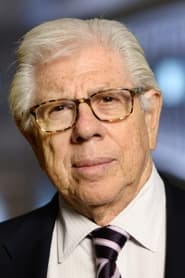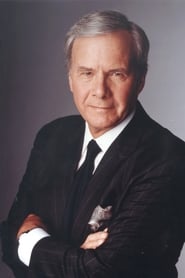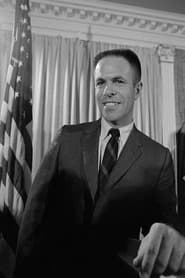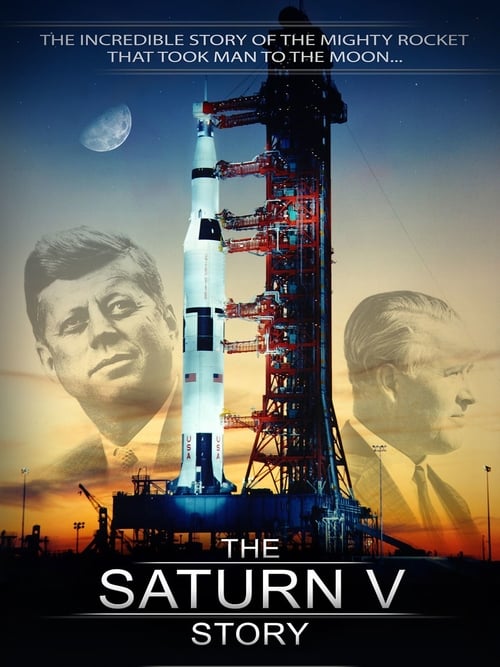
Ask Your Own Question
What is the plot?
More Movies Like This
Browse All Movies →
What is the ending?
In the ending of "All the President's Men Revisited," the documentary revisits the Watergate scandal and its implications on American politics, focusing on the investigative journalism of Bob Woodward and Carl Bernstein. The film concludes by reflecting on the lasting impact of their work, the importance of a free press, and the ongoing relevance of their story in contemporary society.
As the film progresses towards its conclusion, it revisits key moments from the original "All the President's Men" and highlights the aftermath of the Watergate scandal. The narrative emphasizes the courage and determination of Woodward and Bernstein as they navigated a complex web of deceit and corruption. The film features interviews with the journalists, who share their reflections on the significance of their investigation and the challenges they faced.
The final scenes underscore the importance of accountability in government and the role of journalism in safeguarding democracy. The film ends on a note of caution, reminding viewers that the fight against corruption is ongoing and that vigilance is necessary to protect the integrity of the political system.
In a more detailed narrative, the ending unfolds as follows:
The documentary begins to draw to a close, revisiting the pivotal moments of the Watergate scandal. The screen transitions to archival footage of the Watergate hearings, where the tension in the room is palpable. Senators and witnesses alike are seen grappling with the gravity of the situation, their expressions a mix of disbelief and determination. The camera captures the intensity of the moment, focusing on the faces of those who are uncovering the truth.
As the film shifts back to Bob Woodward and Carl Bernstein, they reflect on their experiences during the investigation. Woodward, with a serious demeanor, recounts the late nights spent poring over documents and making phone calls, the weight of the story pressing heavily on his shoulders. Bernstein, animated and passionate, shares anecdotes about the challenges they faced, including threats and pushback from powerful figures. Their camaraderie is evident, showcasing a bond forged in the heat of journalistic pursuit.
The documentary intersperses these reflections with clips from the original film, highlighting key scenes where Woodward and Bernstein confront sources, piece together the puzzle, and ultimately reveal the extent of the corruption. The tension builds as the audience is reminded of the stakes involved--not just for the journalists, but for the nation as a whole.
As the narrative progresses, the film emphasizes the consequences of their work. It shows the resignation of President Nixon, a moment that is both historic and emotional. The camera captures the reactions of the public, a mix of relief and disbelief as they process the implications of the scandal. The weight of the moment is felt through the expressions of those watching, a collective acknowledgment of the power of truth.
In the final scenes, the documentary shifts to a broader reflection on the role of journalism in society. Woodward and Bernstein discuss the importance of a free press, their voices filled with conviction. They emphasize that the fight against corruption is never truly over, and that the vigilance of journalists is essential to holding power accountable. The film closes with a montage of modern-day journalists at work, drawing a parallel between their struggles and those faced by Woodward and Bernstein decades earlier.
As the credits roll, the audience is left with a sense of urgency and responsibility. The fates of Woodward and Bernstein are not just tied to their past achievements; they serve as a reminder that the pursuit of truth is an ongoing battle, one that requires courage, integrity, and an unwavering commitment to justice. The film leaves viewers contemplating the importance of their role in a democratic society, urging them to remain engaged and informed.
Is there a post-credit scene?
All the President's Men Revisited, produced in 2013, does not contain a post-credit scene. The documentary focuses on the events surrounding the Watergate scandal and the investigative journalism of Bob Woodward and Carl Bernstein. It revisits the original film, All the President's Men, and includes interviews with the journalists, as well as insights from historians and political figures. The film concludes with a reflection on the impact of the Watergate scandal on American politics and journalism, but there are no additional scenes or content after the credits.
What role did Bob Woodward play in uncovering the Watergate scandal?
Bob Woodward, portrayed as a determined and meticulous journalist, played a crucial role in uncovering the Watergate scandal by following leads, conducting interviews, and piecing together information that revealed the extent of the Nixon administration's involvement in the break-in and subsequent cover-up. His interactions with key sources, including the infamous 'Deep Throat,' provided him with critical insights that propelled the investigation forward.
How did Carl Bernstein contribute to the investigation of the Watergate scandal?
Carl Bernstein, characterized by his tenacity and resourcefulness, contributed significantly to the investigation by digging into the connections between the Nixon administration and the Watergate break-in. He pursued various leads, interviewed numerous sources, and collaborated closely with Woodward, often working late into the night to verify facts and uncover new information that would ultimately expose the corruption.
What challenges did Woodward and Bernstein face while investigating the Watergate scandal?
Woodward and Bernstein faced numerous challenges during their investigation, including threats from powerful political figures, the difficulty of obtaining reliable information, and the pressure from their editors to produce results. They encountered resistance from sources who were afraid to speak out, and they had to navigate a complex web of lies and misinformation that surrounded the scandal, all while maintaining their journalistic integrity.
Who is 'Deep Throat' and what significance does he have in the story?
'Deep Throat' is the pseudonym for the anonymous informant who provided Woodward with critical information about the Watergate scandal. His significance lies in his role as a key source who guided Woodward and Bernstein through the investigation, offering insights that helped them connect the dots between the break-in and the higher echelons of the Nixon administration. The tension and secrecy surrounding his identity added a layer of intrigue to the narrative.
What impact did the Watergate investigation have on Woodward and Bernstein's careers?
The Watergate investigation had a profound impact on Woodward and Bernstein's careers, catapulting them to national prominence as investigative journalists. Their relentless pursuit of the truth not only led to the resignation of President Nixon but also established them as icons in journalism, earning them numerous awards and recognition for their work. The experience shaped their professional identities and solidified their commitment to uncovering corruption and holding power accountable.
Is this family friendly?
"All the President's Men Revisited," produced in 2013, is a documentary that revisits the Watergate scandal and the investigative journalism that uncovered it. While it is primarily focused on historical events and the work of journalists Bob Woodward and Carl Bernstein, there are some aspects that may be considered objectionable or upsetting for children or sensitive viewers.
-
Political Corruption: The film discusses themes of political corruption, deceit, and betrayal, which may be complex and unsettling for younger audiences.
-
Violence and Threats: There are references to threats and intimidation faced by journalists during their investigation, which may be distressing.
-
Mature Themes: The documentary touches on issues of power, ethics, and the consequences of political actions, which may be heavy topics for children.
-
Historical Context: The portrayal of the Watergate scandal includes discussions of illegal activities and the impact on American democracy, which may be difficult for some viewers to process.
Overall, while the film is informative and significant in its historical context, its themes and discussions may not be suitable for all children or sensitive viewers.






























